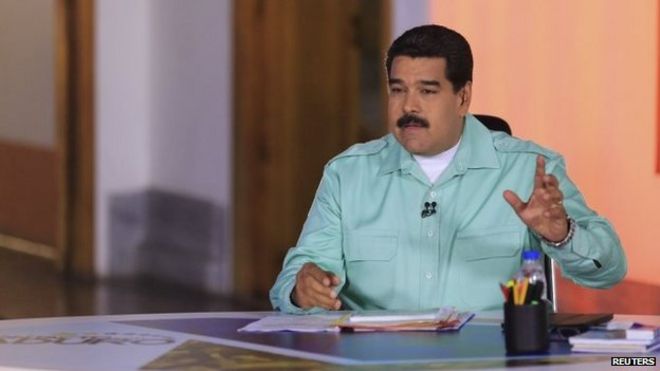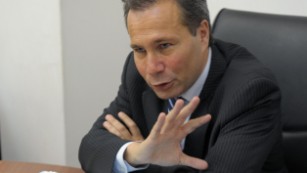ITABORAÍ,
Brazil (Reuters) - For the 20 men hanging on at the Pousada do Trabalhador, a 600-bed boarding house on the dusty outskirts of this boom town northeast of Rio de Janeiro, the dream that Brazil's oil wealth would bring a better life was over.
Their jobs at Comperj, a $15-billion oil refinery being built here in Itaboraí by state-run energy giant Petrobras (
PETR4.SA), are gone, and their employer - a mid-sized engineering company - bankrupt.
The men are the latest victims of Brazil's biggest-ever corruption scandal, a multi-billion dollar graft scheme involving Petrobras, engineering companies and politicians that is battering the world's seventh-largest economy.
As the scandal has deepened in recent months, key infrastructure projects have been suspended or scrapped, some suppliers have sought bankruptcy protection and job losses are mounting by the tens of thousands.
Petrobras' size - it is Brazil's biggest company - amplifies the scandal. Each year it invests double the government's entire discretionary infrastructure budget, giving it enormous power to shape Latin America's largest economy.
All told, economists expect the chain reaction set off by the scandal will tip an already weak economy into its worst recession in a quarter century, a harsh reversal for a country that was booming just a few years ago.
"Our employer went bankrupt, then bankrupted us," Ediney Morão, 38, an equipment operator from São Paulo told Reuters as he prepared to leave the boarding house earlier this month.
"I took leave for Christmas and New Year, came back and suddenly, there's no work."
He and the other men moved out the next day, and the boarding house closed.
There are tens of thousands like Morão, dependent on Petrobras' more than $40 billion of annual capital spending. Most job losses have come since November as police and prosecutors, backed by guilty pleas from key conspirators, unravel a web of price-fixing, bribery and political kickbacks.
FALLOUT
Formally known as Petroleo Brasileiro SA, Petrobras accounts for more than 10 percent of Brazil's investment, 87 percent of oil output and all domestic fuel production. Its annual revenue equals about 8 percent of gross domestic product.
Two refineries worth a combined $30 billion have been canceled. Comperj, a $1.3 billion fertilizer plant and dozens of production and drilling ships, each costing hundreds of millions of dollars, are in limbo.
"Brazil is paying a huge price for depending so much on Petrobras," said Lucia Salgado, an economics professor at Rio de Janeiro State University. She expects the scandal to shave up to 1.5 percentage points from GDP this year.
The damage spread quickly after the scandal prompted Petrobras to put 23 suppliers, including some of Brazil's largest construction firms, on a payment blacklist.
Five of the companies - OAS Engenharia, Galvão Engenharia, Iesa, Schahin Engenharia and Alusa Engenharia, Morão's former employer - have filed for
bankruptcy protection since November, slowing projects like Comperj and halting the building of new production ships.
More bankruptcy petitions are possible.
Even if work returns, there will be less of it. Petrobras plans to cut 2015 investment by as much as third.
The impact is also being felt beyond the oil industry. The 23 implicated firms are among Brazil's most ubiquitous, building everything from ports and highways to stadiums and other facilities for the 2016 Rio Olympics.
Cooperating witnesses say politicians and political parties received kickbacks on inflated contracts from other state-run companies such as utility Eletrobras. That has raised concerns the probe will delay completion of Amazon hydro dams and transmission lines needed to stave off electricity shortages.
President Dilma Rousseff is also suffering. The scandal will delay oil and natural gasoutput and the royalties she has pledged to pay for schools and health care. It has damaged her reputation as a manager because she was chairwoman of the Petrobras board when much of the graft took place.
Rousseff, whose popularity is at an all-time low, denies wrongdoing and has not been charged with any crimes.
But dozens of politicians, nearly all from Rousseff's Workers' Party and its allies in Congress, are under investigation for their alleged role in the scheme, complicating the passage of legislation aimed at curbing inflation and kick-starting the
economy.
BOOM TOWN BUST
In Itaboraí, many feel they were duped.
"Comperj was supposed to be Eldorado. People came from all over Brazil," said Reinaldo Souza, who runs a jobs center. "Optimism about the future has been replaced by anger over corruption."
The city government says there were 17,000 workers at Comperj in December and less than 3,000 now. In Itaboraí, new office parks, hotels, stores and high-rise apartments stand empty.
Nationally, Brazil shed payrolls for a third straight month in February, bringing job losses over the last year to 47,228.
"The scandal couldn't have come at a worse time," said Alexandre Fernandes, labor secretary for Macaé, a city northeast of Itaboraí where Petrobras has its biggest offshore oil base.
Before the scandal, he said, Petrobras was already cutting back because new output had lagged spending for a decade.
Then oil prices LCOc1 fell to six-year lows, adding to the woes.
Schlumberger NV (
SLB.N), the world's largest oil-services company, has laid off hundreds in Brazil, many in Macaé.
Brazil's government is so concerned that it is rushing to sign "leniency accords" with the banned companies.
If they admit guilt, return stolen funds and pay fines, the ban on receiving money from Petrobras and the federal government will end, no matter the outcome of criminal and civil suits.
"We have about four months to get these deals done or face a nationwide infrastructure-construction blackout," said Delcídio Amaral, a senator for the Workers' Party. "You can't just restart this all from scratch."
Smaller businesses, though, are unlikely to get such help.
Marco Paulo Pires, the boarding house manager, said Itaboraí's economy was "torn apart" by the scandal.
"I worked a lot for Petrobras," Pires, 33, said as he sold the hostel's furniture on the sidewalk after it closed down. "Now I have to start over from zero."



